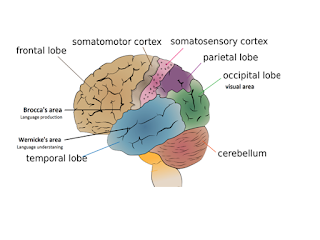AQA A-LEVEL: Issues and Debates - Culture Bias
CULTURE BIAS
CULTURE BIAS: interpreting and judging behaviours/attitudes by standards inherent to one's own culture
_________________________________________________________________________________
ETHNOCENTRISM: Tendency to use one ethnic group as a reference point for making judgements about other cultures behaviour
CULTURE BIAS: interpreting and judging behaviours/attitudes by standards inherent to one's own culture
_________________________________________________________________________________
ETHNOCENTRISM: Tendency to use one ethnic group as a reference point for making judgements about other cultures behaviour
- Our Western culture is seen as "normal" and those which deviate from this are seen as "different" or even "primitive" and "unsophisticated"
- This may mean we ignore the views, or values of another society when interpreting research findings
AN ETIC APPROACH
- Where research is carried out across cultures in order to discover what elements of behaviour might be universal.
- E.g. Berry (1969) replicated Asch to see if conformity rates seen in the US would occur in Temne people of Sierra or Inuit Canada.
- Temne had high conformity rates but Inuit had low rates. The difference was due to the style of living (agricultural vs hunting). Conformity is not a universal behaviour
- There is an issue in assuming behaviours are universal when they're not. There is an IMPOSED ETIC when cultural differences are ignored in research.
- E.g. Strange Situation by Ainsworth
- Children can be classed as insecure or abnormal if they don't fit into the western idea of a "secure child"
AN EMIC APPROACH
- Where one culture is studied in order to discover culture-specific research
- Done by Margaret Mead
- She tried to study the Samoans and learn their language, she gained a lot of research, however, she could not comprehend sarcasm so her the girls in her interviews may have been sarcastic or lying about their supposed sexual freedom
CULTURAL RELATIVISM
- Idea that behaviour can only be understood if you take into account the cultural context
- Many definitions of abnormality are culturally relative and cannot be applied universally in order to establish what it is to be psychologically abnormal
- An issue with the Emic approach is that it's hard to get a true understanding of the culture when you're not a member of it.
- In experiments, there would be limited contact with sample
EVALUATION OF CULTURAL BIAS
Ethnocentrism has led to INDIGENOUS PSYCHOLOGIES
- Different groups of theories in different countries
- AFROCENTRISM - Belief that all black people have their roots from Africa so psychological theories concerning such people must, therefore, be African centred and must express African values
- This approach suggests that the values and culture of Europeans devalue non-Europeans
CONSEQUENCES of cultural bias can be Damaging
- Gould (1981) - Showed European immigrants and Africans fell slightly below white Americans in terms of IQ. Americans were at the bottom of the scale with the lowest mental age. Data had a profound effect on racist attitudes, led to enduring stereotypes on ethnic groups and their IQ
Now the Psychology Community is WORLDWIDE
- Researchers travel more than they did 50yrs ago, there is an increased understanding of cultures at a personal and professional level
- International conferences allow researchers from various cultures and countries to meet and discuss ideas
- A greater exchange of ideas should reduce ethnocentrism and allow people to understand cultural relativism




Comments
Post a Comment